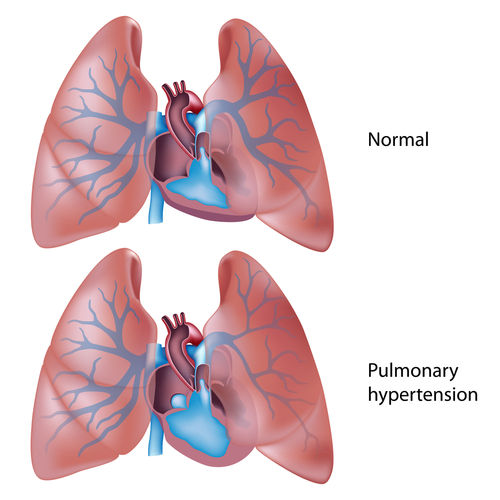Liminal Biosciences’s PBI-4050 Reduces Pulmonary Hypertension, Preclinical Data Show
Written by |

New preclinical data supports the positive effects of Liminal Biosciences’s lead candidate, PBI-4050, in reducing pulmonary hypertension and the abnormal enlargement of the heart’s right ventricle muscle.
The company presented its latest data on two posters at the American Heart Association 2019 conference, held recently in Philadelphia.
The posters are titled “PBI-4050 Reduces Angio-proliferative Pulmonary Arterial Hypertension: Decreased Human Pulmonary Artery Smooth Muscle Cell Proliferation and Microvascular Endothelial Cell Endoplasmic Reticulum Stress,” and “Transcriptomics of Lung Molecular Remodeling in Pulmonary Hypertension Due to Left Heart Disease: Benefits of Combined PBI-4050/Valsartan Therapy.”
PBI-4050 is an oral therapy originally developed to treat idiopathic pulmonary fibrosis (IPF). The therapy helps regulate both inflammation and scarring, or fibrosis, by reducing the level of pro-fibrotic cytokines — chemical signals that promote scarring.
Apart from IPF, previous data showed that PBI-4050 reduced pulmonary hypertension (PH) and right ventricular hypertrophy, which is the abnormal enlargement of the heart right ventricle muscle, common among PH patients.
In the first study, researchers used a rat model that closely mimics severe pulmonary arterial hypertension (PAH) in humans, called Sugen/chronic hypoxia. The team assessed the effects of PBI-4050 compared with that of sildenafil or a placebo. Sildenafil, marketed by Pfizer as Revatio, is an approved oral medication for PAH that widens the blood vessels of the lungs, lowering blood pressure.
The rats were treated with PBI-4050 (200 mg/kg/day), sildenafil (100 mg/kg/day), or placebo for 4 weeks.
The results showed that PBI-4050 effectively reduced PAH, right ventricular hypertrophy and dysfunction. It also decreased the scarring of blood vessels.
Sildenafil showed comparable effects, but was better at improving certain parameters of right ventricular (RV) function. These parameters include right ventricular systolic pressure, tricuspid annular plane systolic excursion (TAPSE) — a measure of the efficiency of the right ventricle to eject blood — and RV contractility. Contractility is the inherent strength and vigor of the heart’s contraction.
Genetic analyses of the rats’ lungs showed that PBI-4050 decreased the levels of the genes that promote fibrosis, including α-smooth muscle actin (α-SMA). It also decreased the levels of the genes that promote inflammation, which include IL-6 and MCP-1. The analyses also showed that PBI-4050 markedly reduced a specific stress pathway, called ER stress, in endothelial cells, which are the cells lining the blood vessels.
Overall, the results showed that PBI-4050 reduced the expression of profibrotic and proinflammatory markers.
This supports the therapy’s development as a treatment for PAH, the researchers said.
In the second poster, the investigators used an animal model to study how PBI-4050 could modulate fibrosis in the lung after a heart attack (myocardial infarction) causing PH.
Two days after the heart attack, the team administered PBI-4050, valsartan — an angiotensin receptor blocker that lowers blood pressure — or a combination of the two. This treatment was continued for five weeks. The researchers then analyzed gene activity in the lung tissue after treatment.
The results suggested that the combination of PBI-4050 and valsartan improved right ventricular hypertrophy and function. The gene activity seen after treatment mirrored these biological effects.
“We showed that, after large MI [myocardial infarction] causing PH, PBI-4050 therapy provides added benefit to valsartan, by … improving RV function and hypertrophy,” the researchers said.
“Although not a current focus of the Company’s research program, this new preclinical data adds to our body of knowledge of our lead compound, PBI-4050,” Kenneth Galbraith, CEO of Liminal BioSciences, said in a press release:



